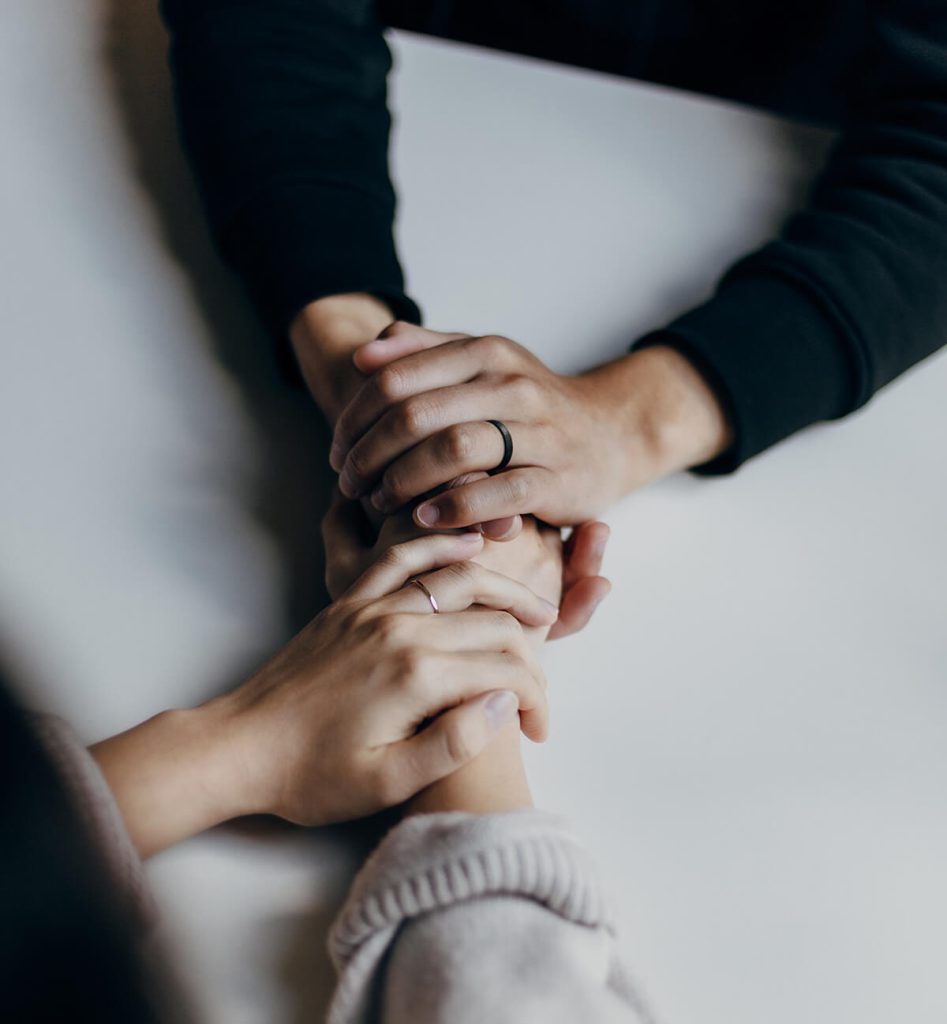Dealing with "Loss of Appetite" Due to Cancer Treatment
Dealing with Loss of Appetite Due to Cancer Treatment” is a comprehensive guide aimed at helping individuals who are undergoing cancer treatment and experiencing a decreased appetite. The article focuses on the causes of decreased appetite due to cancer treatment and offers practical tips and strategies for overcoming it. By understanding the reasons why appetite may decline during cancer treatment and the importance of maintaining a healthy diet, individuals can improve their overall health and well-being during this challenging time. The article is a helpful resource for cancer patients, their loved ones, and healthcare professionals looking for ways to support their patients.
By Dr. Naoto Ueno
Dealing with "Loss of Appetite" Due to Cancer Treatment
When undergoing cancer treatment, factors such as side effects from chemotherapy and stress can result in a loss of appetite. When I was a patient myself, I struggled greatly with “changes in taste.” In this article, I will focus on the issue of “changes in taste” and introduce specific ways to cope with it and examples.
What You Will Learn from This Article:
- Loss of appetite is not always a problem.
- Why do “changes in taste” cause a loss of appetite?
- What is needed is “understanding from those around you”
- Foods and ways of eating that should be avoided during cancer treatment
When is a loss of appetite a problem?
Since the human body has a store of nutrients, for healthy people, a reduction in appetite and the amount of food eaten itself does not immediately become a problem.
Of course, if everyday eating habits are unbalanced and there is a lack of food, leading to a lack of nutrition and energy, this can become a problem, but this is a scarce case.
In fact, even trying to overeat can trigger vomiting, so it’s better not to eat in some cases.
The short-term choice is not to eat to proceed smoothly with treatment. For a short period, which is about 1 to 2 weeks, it is generally said that the human body can do without eating for that amount of time.
Even in short-term cases, replenishing fluid is very important. Becoming dehydrated is quite dangerous, so it is essential to replenish fluid consistently. In other words, if you want to proceed smoothly with treatment in the short term, it may be best to focus on replenishing fluid and not stress about eating.
Fortunately, water is less affected by changes in taste. However, it may suddenly become undrinkable as soon as it tastes different. For example, I couldn’t drink cola anymore while undergoing treatment. In other words, cola no longer tasted good to me.
From the perspective of replenishing fluid, the ideal drink is a sports drink. In other words, drinks without sugar and salt are recommended.
On the other hand, from the perspective of long-term treatment, adequate food intake is essential. This is because it replenishes the energy needed for treatment. The accumulation mentioned earlier is not infinite, so replenishment is necessary somewhere. This article is about the problem of decreased appetite in long-term treatment.
Why does appetite loss occur?
Chemotherapy in cancer treatment is the leading cause of appetite loss even when there is a desire to eat.
According to the National Cancer Center Hospital East, the following five reasons are introduced as the leading causes of appetite loss.
- Decreased digestive and absorption function
Constipation, diarrhea, abdominal distension, discomfort, nausea, and vomiting. - Side effects of cancer treatment
Nausea and vomiting, oral mucositis, esophagitis, changes in taste. - Difficulty in chewing and swallowing
Old age, ill-fitting dentures, post-oral or esophageal surgery. - Poor overall condition
Influence of substances that reduce appetite from tumors, intense fatigue, fever, pain (itchy), and difficulty sleeping. - Mental stress
Anxiety, feeling down.
Source: National Cancer Center Hospital East
Now, I will focus on the “change in taste,” which is listed among the causes.
Eight pieces of advice are given for dealing with the loss of appetite, which is as follows:
- Eat smaller portions and divide them into several meals.
- Eat when you feel the best.
- Eat mainly foods that are easy to digest.
- Choose light and refreshing foods.
- Choose food with a good texture.
- Control odors by eliminating bitterness, cooling, etc.
- Prepare food that is easy to eat and can be eaten at any time.
- Make sure to drink plenty of water regularly.
Source: National Cancer Center Hospital East
In this, I would like to share my knowledge as a doctor and my personal experience regarding how to find the 7th item, “easy-to-eat food,” among these.
First, there are three types of changes in taste. One is the case where the taste becomes less recognizable; another is the opposite where the taste becomes too recognizable; and the last is a change in taste.
The solution for the first case when the taste is not recognizable is that making the taste stronger can be effective. In other words, adding more salt, sugar, spices, etc. than usual.
In the case where the taste is too recognizable, more care is needed. When the taste is too recognizable, each taste becomes independent and not harmonious, making it unpleasant to taste.
In this case, simple tastes tend to be easier to eat. For example, Cup Noodles are one of the popular foods among patients in Japan. Because it has a strong salty taste, it is in demand not only from those who have a taste that is too recognizable but also from those who have a not recognizable taste.
When I was receiving treatment, I could not eat high-end and expensive pudding, but I felt that affordable pudding was very delicious, and I ate a lot of it. Not just pudding, I tended to eat more affordable food rather than expensive food.
I also ate soda-flavored sorbets like ice cream and burgers from Burger King. They were all relatively affordable.
Finally, changes in taste vary from person to person, and it is good to review your tastes and preferences, including tastes you used to dislike.
As I wrote at the beginning, replenishing fluids is essential, and when I was a patient, I drank a lot of Gatorade. The reason was that there were wide varieties and I could choose a taste that suited me. It may also be good to try drinking and to eat various drinks and foods with many flavors.
So far, I’ve introduced quite specific causes and expected solutions. However, this is only based on what I’ve seen and heard as a doctor and may not apply to everyone. Taste changes vary from person to person, so it’s not clear whether they are genuinely effective until the patient confirms it themselves. Therefore, it’s necessary to find what works by trying other patients’ cases while finding what works for oneself.

What is needed is "understanding from those around”
Eating balanced meals is acceptable in the end, but prioritize avoiding dehydration and getting enough calories.
Actually, well-intentioned gifts of food can often backfire. As I mentioned earlier, the delicious food people bring as gifts often have complex flavors and can’t be enjoyed. When people visit a patient who is undergoing chemotherapy, it’s best to ask beforehand what they would like, instead of giving them something they can’t eat. This will likely be better for the patient in the long run, instead of giving them something they can’t eat as a surprise.
While I wrote that eating anything is fine, some foods and ways of eating may not be ideal in relation to the treatment.
Foods and ways of eating to avoid
Although I have been writing about eating anything that can be eaten, here is information about foods and ways of eating that are better to avoid.
During chemotherapy, white blood cells may become weak, making them more likely to catch infections. For this reason, foods and problematic ways of eating from a hygiene perspective should be avoided.
For example, it’s best to avoid raw food and make sure to eat food that has been thoroughly cooked. When it comes to the way of eating, it’s better to avoid buffet-style eating. Sharing large platters with many people increases concerns about hygiene compared to having individual meals brought to you.
Eating at restaurants is also not recommended unless there is a guarantee that what is being served can be eaten. There is a possibility that the food will not be able to be eaten due to changes in taste, and restaurants have limited options in these cases.
During treatment, eat food in a clean, safe environment, and avoid foods that may be difficult to digest. Foods that are high in fiber, or have solid flavors or smells, may cause discomfort and should be avoided.
*Please see and ask your doctor about your cases. This article was created from various reference sources as a gate to multiple helpful pieces of information. Please refer to the original articles for more detailed information.
Source:
We have provided these links to other websites because they may have information that would be of interest to you. There may be other websites that are more appropriate for your purpose. We do not necessarily endorse the views expressed or concur with the facts presented on these outside sites. Further, we do not endorse any commercial products that may be mentioned on these sites.
